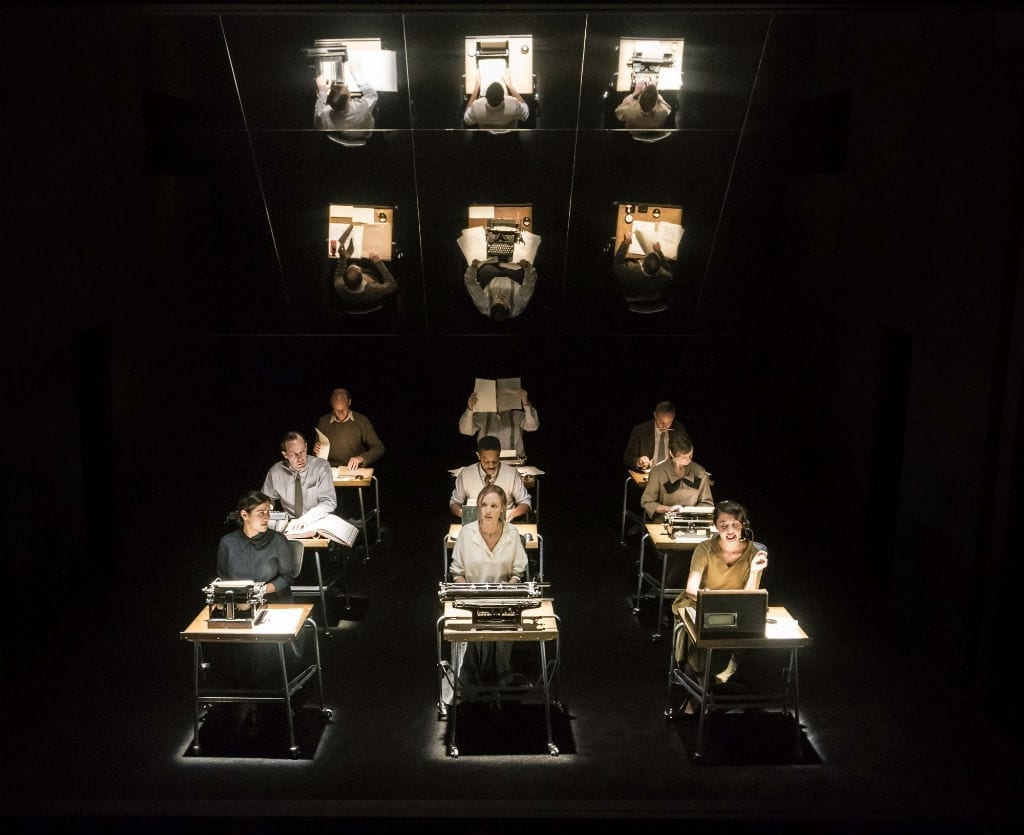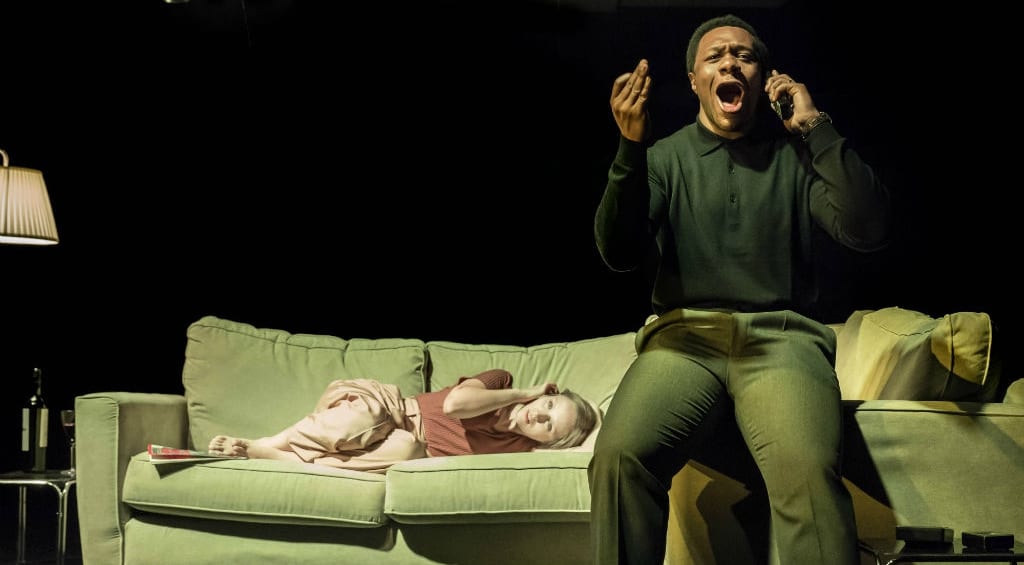Machinal is an episodic narrative about events leading up to a murder. A young typist (Emily Berrington) is made an offer of marriage by her boss Jones (Jonathan Livingstone), a forceful and ambitious man who admires her sexually more than anything. Although she finds him obnoxious, she feels pressured to accept the offer for financial reasons, given that her mother (Denise Black) also relies on her income for support.
The typist is affected deeply by the ambient noises of the surrounding metropolis. She fears the hustle and bustle of her commuter train, the blaring of horns and motors, as well as the incessant clacking of typing machines in her office. However, in a world obsessed with quantifying and defining things, her vague complaints about mental stress are disregarded, especially since her adjacent female colleague (Kirsty Rider) seems so calm and collected, even whimsically aloof, while doing a busier job of operating a telephone switchboard.
As the episodes progress, we see her jump uneasily to different stages of her life. Miraculously, we also see her slipping through time unaged, which I suppose is meant to show that this kind of exasperation pervades the century. Berrington changes her costume many times to suit the decade, but sticks to her portrayal of this woman, or rather type of woman, as afraid to be touched, prone to outbursts, agoraphobic and neurotic. Unfortunately, these are the sorts of anxieties that others fail to accommodate because they disdain fragility, and so these uncomfortable feelings are allowed to boil over into rage.

A man (Dwane Walcott) provides a brief escape for the woman from marital woe. The pair retreat to his dishevelled yet hip apartment after a night of drinking and smoking. He’s an attractive and scandalous Byron-like figure, confessing to killing two men in Mexico – or some such equatorial country, which foreshadows the injustice of the later murder trial. Just like this man, faced with two attackers and needing to ‘get free’, this typist too feels boxed in, yet such evidence for a murder-case defence is completely insubstantial in a court of law.
There are no names uttered during the entire play, except for the enterprising husband – ‘Mr George H Jones’ – which is repeated with Beckettian fastidiousness in the woman’s stream of consciousness. Yet just as he consumes her thoughts, her daughter (Tidankay Abiba-Doukoure Ta’lia Harvey Poppy O’Mahony-Dawe) doesn’t enter them at all. She sits on the sofa, absorbed by a computer game, perhaps used to being ignored by her mother. Jones is still preoccupied by his business, determined to buy a Swiss watch directly from Switzerland as a trophy of his wealth, lusting after his delicate wife’s hands rather than caring for her sanity.
Some time after this affair she cracks, unable to take these things that have been forced upon her – marriage, a child, domesticity, the expectation to be content – lashing out at the symbol of all this oppression, her overbearing and out-of-touch husband. As the voice of the judge (Andrew Lewis) booms and insists, while her defence lawyer attempts to forge a false narrative of a happy marital union, she shouts an admission of guilt, sealing her fate. Although she is often silent, incapable of articulating exactly why she feels the way she does, her silence speaks volumes about the trauma women face. Machinal is a poignant and heartfelt look at the plight of modern women.

